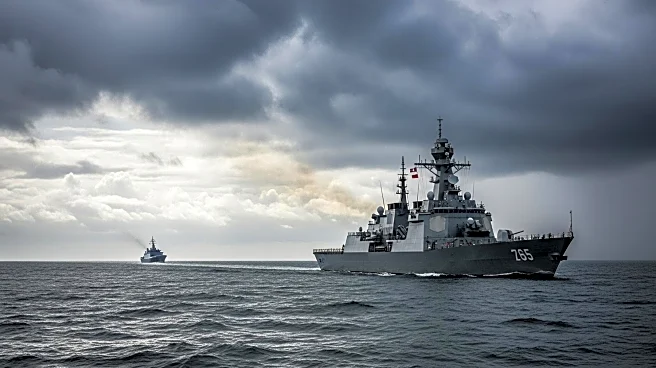What's Happening?
Russian warships have been reported to engage in provocative actions against Danish naval vessels in the straits connecting the Baltic Sea to the North Sea. According to Denmark's Defence Intelligence Service, these actions include sailing on collision courses, aiming weapons, and disrupting navigation systems. The incidents have heightened tensions in the Baltic region, which has been on alert since Russia's 2022 invasion of Ukraine. Denmark, a strong supporter of Ukraine, has increased its military budget and is acquiring long-range precision weapons. The Danish Defence Intelligence Service has noted that Russian warships have been using sonar and jamming equipment, causing GPS interference. Despite these provocations, there is no direct military threat to Denmark, but the incidents are seen as part of Russia's hybrid warfare strategy.
Why It's Important?
The provocations by Russian warships in Danish waters underscore the ongoing geopolitical tensions between Russia and Western nations. These actions are part of a broader pattern of hybrid warfare, which includes cyberattacks and disinformation campaigns. The situation highlights the strategic importance of the Baltic Sea as a critical shipping route and a potential flashpoint for conflict. Denmark's response, including military enhancements and international cooperation, reflects the seriousness with which it views these threats. The incidents could lead to increased military presence and cooperation among NATO allies in the region, potentially escalating tensions further.
What's Next?
Denmark and its NATO allies are likely to continue monitoring the situation closely, with potential increases in military patrols and surveillance in the Baltic Sea. The international community may also see heightened diplomatic efforts to address the provocations and prevent further escalation. Additionally, Denmark may pursue further military investments and strategic partnerships to bolster its defense capabilities against hybrid threats.








